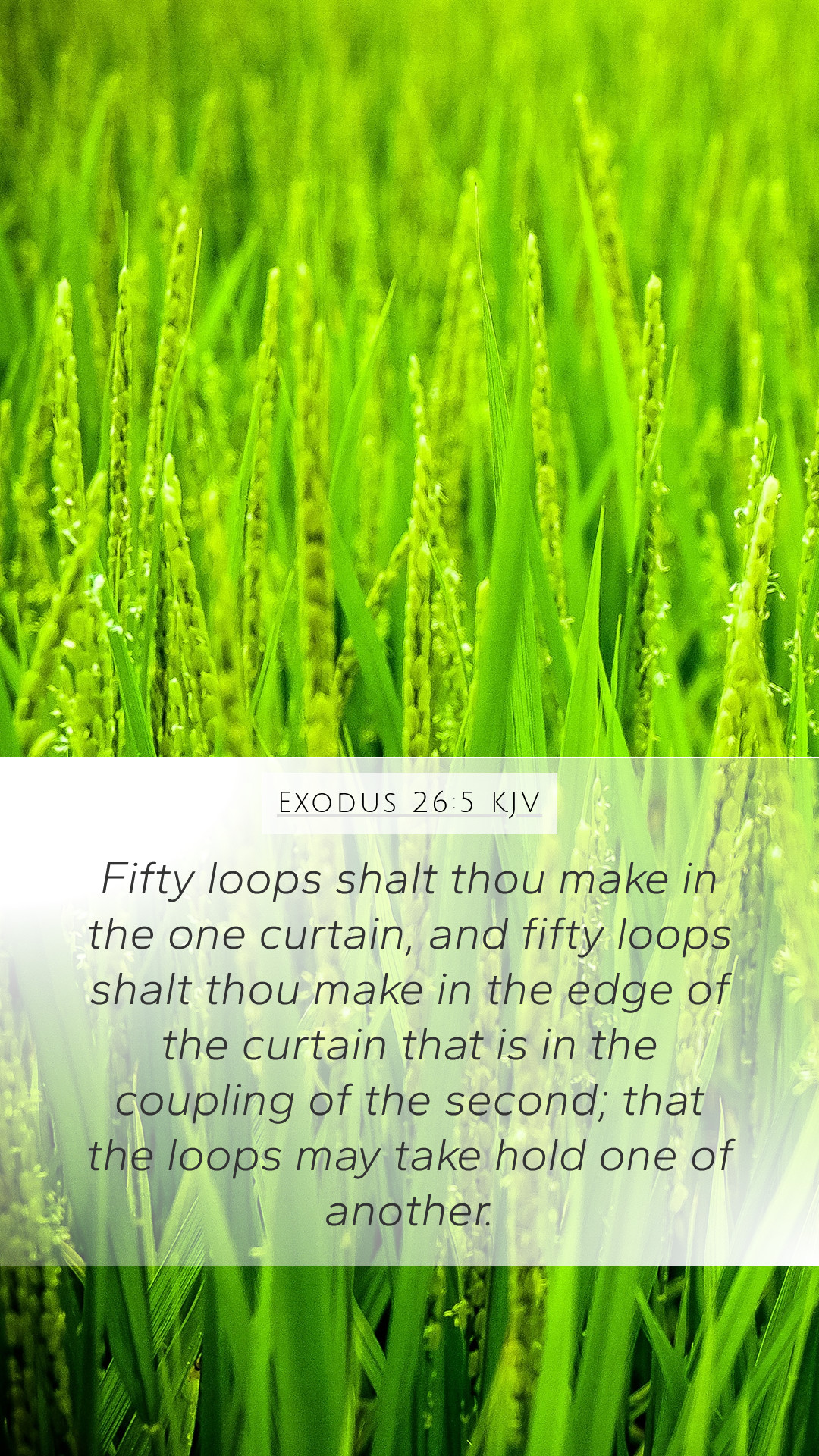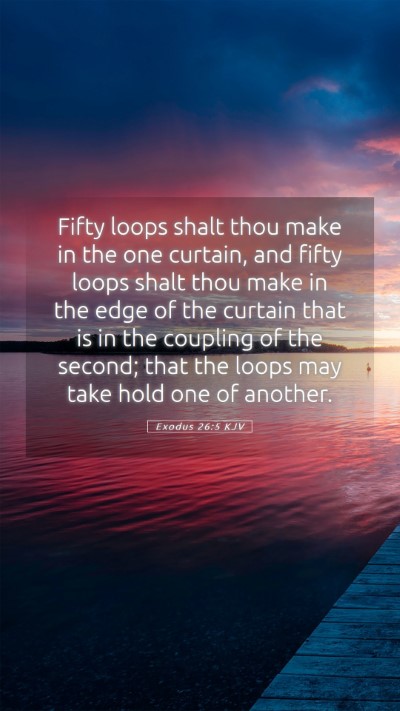Understanding Exodus 26:5
Exodus 26:5 states: "And thou shalt make curtains of goat's hair to be a covering upon the tabernacle: eleven curtains shalt thou make." This verse pertains to the construction of the Tabernacle, detailing the materials and framework that were to be assembled for this sacred space. Through careful study and examination, we can garner deeper meanings and insights from public domain commentaries.
Bible Verse Meanings
This verse highlights the significance of the materials used in the construction of the Tabernacle. The choice of goat's hair is particularly noteworthy, suggesting qualities such as durability and protection. According to Matthew Henry, the goat's hair signifies the covering of our sin and imperfections. Furthermore, Albert Barnes elucidates that the use of multiple curtains made of goat's hair reflects God's multifaceted provision for His people, protecting them from the elements while also symbolically covering their transgressions.
Bible Verse Interpretations
From a theological perspective, the construction materials of the Tabernacle represent the need for a mediator between God and humanity. Adam Clarke interprets the goat hair as emblematic of Christ's righteousness, which covers our failings. Thus, this verse serves as a precursor to understanding the redemptive work of Christ and His role in providing access to God.
Historical Context
- Construction of the Tabernacle: The instructions given for the Tabernacle's construction were foundational for the Israelite community as they journeyed through the wilderness, representing God's presence among them.
- Materials of the Tabernacle: The use of specific materials, including goat's hair, fulfills a practical need while also serving a symbolic purpose that echoes throughout biblical narratives.
Symbolism in Scripture
The curtains made of goat's hair function symbolically to illustrate the separation between the holy presence of God and the sinful nature of humanity. This theme recurs throughout Scripture, portraying the need for divine mediation. Furthermore, Albert Barnes notes that the number of curtains (eleven) may represent the tribes of Israel, hinting at unity and collective worship directed towards God.
Applications to Daily Life
Understanding Exodus 26:5 is beneficial not only for grasping its historical and theological implications but also for practical application. Here are ways this verse informs our lives:
- Recognizing God's Provision: Just as the materials of the Tabernacle were provided by God, we are reminded of God’s ongoing provision in our lives.
- The Importance of Unity: The mention of multiple curtains can symbolize the need for unity within the body of Christ, encouraging believers to work together in their spiritual journeys.
Additional Bible Cross References
- Hebrews 9:2-5: Discusses the structure of the Tabernacle and its furnishings.
- 1 Peter 2:9: Highlights believers as a royal priesthood, paralleling the sacred nature of the Tabernacle.
- Exodus 25:8-9: Describes God's desire to dwell among His people.
Conclusion
Exodus 26:5 provides a glimpse into the meticulousness with which God guided His people, as well as the rich symbolism embedded within the physical construction of the Tabernacle. Through a combination of biblical exegesis and scripture analysis, we uncover layers of meaning that speak to God's provision and the necessity of mediation in our relationship with Him. For those involved in Bible study groups or engaging in online Bible study, this verse presents a profound opportunity for deeper exploration and understanding of Scripture.


